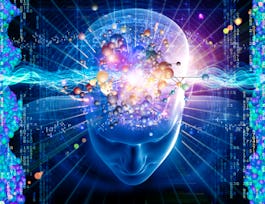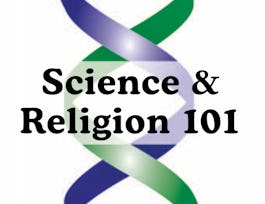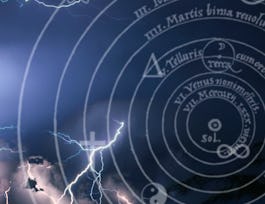Philosophy, Science and Religion mark three of the most fundamental modes of thinking about the world and our place in it. Are these modes incompatible? Put another way: is the intellectually responsible thing to do to ‘pick sides’ and identify with one of these approaches at the exclusion of others? Or, are they complementary or mutually supportive? As is typical of questions of such magnitude, the devil is in the details. For example, it is important to work out what is really distinctive about each of these ways of inquiring about the world. In order to gain some clarity here, we’ll be investigating what some of the current leading thinkers in philosophy, science and religion are actually doing.


Philosophy, Science and Religion: Science and Philosophy
Taught in English
Some content may not be translated
54,079 already enrolled
(943 reviews)
Details to know

Add to your LinkedIn profile
22 quizzes
See how employees at top companies are mastering in-demand skills


Earn a career certificate
Add this credential to your LinkedIn profile, resume, or CV
Share it on social media and in your performance review

There are 5 modules in this course
In this module, Dr Orestis Palermos provides a short introduction and overview of the key themes that will be discussed in the ‘Science and Philosophy’ course.
What's included
1 video1 reading1 discussion prompt
In this module Professor Al Mele presents experiments that purport to show that there is no such thing as free will. He then presents three criticisms of this interpretation of the evidence.
What's included
7 videos5 readings5 quizzes1 peer review1 discussion prompt
Guest lecturer: Dr Michael Murray. Are science and religion compatible with one another? Are they incompatible? What do these questions even mean, and how do we go about answering them? Philosophical tools are helpful to make progress with these very important questions. In this module, Dr Michael Murray offers a philosophical analysis of the complex and easily misunderstood issue of the relationship between science and religion.
What's included
7 videos2 readings3 quizzes1 peer review
Guest lecturer: Professor Martin Kusch. This module will focus on a central challenge for scientific knowledge: Are there any scientific claims that are absolutely true, or are they all true relative to the system of thought that generated them? If we accept the latter, does this also hold true of any claims we might make, including within the domains of philosophy and religion?
What's included
5 videos3 readings3 quizzes1 peer review1 discussion prompt
This module starts with Dr. Mark Harris presenting the history of creationist views and what is claimed about evolution by different creationist approaches. Professor David de Pomerai then goes on to explain what evolutionary biology is.
What's included
14 videos4 readings11 quizzes1 peer review2 discussion prompts
Instructors


Offered by
Recommended if you're interested in Philosophy

The University of Edinburgh

University of Pennsylvania

University of Alberta

The University of Edinburgh
Why people choose Coursera for their career




Learner reviews
Showing 3 of 943
943 reviews
- 5 stars
65.39%
- 4 stars
24.65%
- 3 stars
5.50%
- 2 stars
1.48%
- 1 star
2.96%

Open new doors with Coursera Plus
Unlimited access to 7,000+ world-class courses, hands-on projects, and job-ready certificate programs - all included in your subscription
Advance your career with an online degree
Earn a degree from world-class universities - 100% online
Join over 3,400 global companies that choose Coursera for Business
Upskill your employees to excel in the digital economy
Frequently asked questions
Access to lectures and assignments depends on your type of enrollment. If you take a course in audit mode, you will be able to see most course materials for free. To access graded assignments and to earn a Certificate, you will need to purchase the Certificate experience, during or after your audit. If you don't see the audit option:
The course may not offer an audit option. You can try a Free Trial instead, or apply for Financial Aid.
The course may offer 'Full Course, No Certificate' instead. This option lets you see all course materials, submit required assessments, and get a final grade. This also means that you will not be able to purchase a Certificate experience.
When you purchase a Certificate you get access to all course materials, including graded assignments. Upon completing the course, your electronic Certificate will be added to your Accomplishments page - from there, you can print your Certificate or add it to your LinkedIn profile. If you only want to read and view the course content, you can audit the course for free.
You will be eligible for a full refund until two weeks after your payment date, or (for courses that have just launched) until two weeks after the first session of the course begins, whichever is later. You cannot receive a refund once you’ve earned a Course Certificate, even if you complete the course within the two-week refund period. See our full refund policy.




